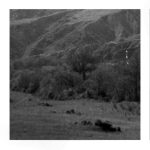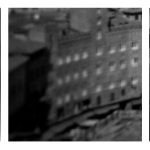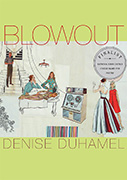





Poet, essayist, and publisher Rick Campbell and nonfiction writer Bob Kunzinger have published a combined fourteen books. Campbell’s include The History of Steel, Setting the World in Order, and Dixmont, many poems in countless journals, and for more than twenty years he was the publisher at Anhinga Press in Tallahassee, Florida. Bob Kunzinger’s volumes include Borderline Crazy, Penance, and Fragments as well as hundreds of works in journals and magazines, including several notations by Best American Essays.
Now both have new books from Madville Press of Texas. Campbell’s Gunshot, Peacock, Dog premiered last fall, and Kunzinger’s A Third Place: Notes in Nature in August of 2019.
These two old friends—both writers and professors with a penchant for sharing their wisdom—sat down for a chat about writing:
Kunzinger:
I always found the relationship between poetry and memoir to be closer than either of those and fiction. That’s why I think you find many poets writing essays or other forms of memoir, but not too many fiction writers (though I can suddenly recall many) who bother with nonfiction, or even poetry. I have an easier time reading poetry than fiction because it sends me back into my own senses, and I like that.
Ironically, I’m as influenced by poets as I am prose writers. You’re both, so there’s that. In fact, I enjoy your poetry, for which you are known, but I’m especially fond of your essays—the two in History of Steel are among my favorite nonfiction prose. Who influenced you, do you think? Where are you more comfortable?
Campbell:
I have no interesting answer, no matter how many times I am asked. In poetry, Richard Hugo, James Wright, Philip Levine. I’ve read and liked, even loved, hundreds of poems, but those three poets influenced me the most because I read them first, when I was poetically young. It’s possible that I have been more influenced by Bob Dylan and Bruce Springsteen and so many song writers than I have poets. I am a listener. For years I have listened to music far more, for far more hours a day, a week, than I read poetry. I hear music and rhythm more than words. I am, I believe, more moved by songs than poems. I am a poet because I wanted to be a songwriter.
Kunzinger:
I think that’s why we are very much the same when it comes to influence, and even a bit with my short prose and your longer poems. We were both musicians at some point—you still are—and the music of our youth was as much our literature as Salinger or Hemingway. For me, early Springsteen, Jackson Browne, Dylan. If I’m screwing around with a longer piece and listen to Neil Young or Browne’s “Sky Blue and Black,” it’s like getting a hit of something that fires me up.
Campbell:
I suppose I am more comfortable as a poet, but identity is a strange thing for me. For many years I think I was better known as a publisher than a writer, and I kept wanting to tell people I’m a writer too. I spend more time thinking about and writing prose than poetry, even though I’ve published six books of poetry and not even one prose collection. I don’t think about poems—I get an inspiration and I write a poem. I never say I’m going to write a poem about ducks or love or something. Poems come quickly, and then it’s over. But I do think about and sketch prose ideas. I have about thirty essays that are finished or nearly so, and it’s taken about twenty years to get this far. If I start a poem, for whatever reason, I write it in a matter of minutes. I don’t bend it or play with it. I don’t even think of it as narrative, as if it’s going somewhere. It’s a bubble that rises over my head like in a cartoon. If I have a prose idea it usually takes longer to be born, but prose ideas go into one box and poetry into another. They don’t get mixed up. Sometimes I might take a finished poem and expand it into an essay, but rarely.
Your flash prose pieces and my longer poems often have much in common. I think your work and mine tends to move horizontally—sliding and leaping from subject to subject. I think it’s called accretion. We layer ideas, but more horizontally than vertically.
Kunzinger:
I am not sure the material is horizontal—maybe in as much as there is some recognizable narrative arc in many pieces—but I think of the tangents within a piece as the real work more than the apparent direction. What’d you call it? Accretion? I tend to think of what we both do in writing as “digression.” I like the digressive nature of some of the pieces—“Flip Flops,” for instance, where the direction of the piece turns out to be little more than a vehicle for the deeper purpose. I think Tim O’Brien does that best, but I think he stole the style from Ernie Pyle, or maybe Czech writer Bohumil Hrabal.
Campbell:
I think I mean that our subjects are layered in a way that one idea isn’t privileged over the others. No dominant idea with the others subservient. Not much hierarchical structure. Your essay “Sliced Bread” does that. When I still used to workshop my poems, I was often told that I had too many subjects. I think that’s not possible as long as I leap and land properly. You and I think in associations and see lots of connections. This might also be why I have trouble finishing essays. Why or when should I stop leaping? It’s a process of montage. a palimpsest, a highway built over a trail, a road that follows a river. Accretion and digression might be the same thing. Tangents, too, but they go toward the essential subject not away from it.
Kunzinger:
I had to look up “palimpsest.” But, yes, exactly. The tangent is the point to begin with. I guess we layer ideas. That’s why I like longer pieces. I can layer it to the point where people will find more to relate to. It is hard for me to do short work. My short prose was developed for the sole purpose of reading to an audience, and some of it has been published, but they were meant to be read in the amount of time it takes to read a two- or three-page narrative poem, so that when I read with poets we’d share the same amount of time. What that did, though, was teach me the art of diction. I reached back to my journalism roots for that and stole from poets like Tim Seibles and Richard Lax. But I’m still way more comfortable in weaving ideas in longer form. That doesn’t mean it always works! Can you tell? I mean, how quickly can you tell if something’s working?
Campbell:
If I finish a poem, then it works. If it fades out partway through, then it’s over. I don’t go back to it. We have music in common and probably also that we never intended to be scholars. I saw my college studies more as vocational school, and my vocation was to write poetry.
Kunzinger:
My vocation is still to be determined. Our “occupational hazard” being that our occupation’s just not around.
Campbell:
Did you ever hear of the JBACC—the Jimmy Buffet Air Conditioning Club? It’s cooler than a fan club.
Kunzinger:
Oh, shit.
Campbell:
Back to writing. I very much give a shit about being read. I like to publish, and I like to have readers. Maybe I don’t care as much anymore about being famous and making it. Does that make us defensive of our work? As in we might still think we have not received the recognition the work deserves? If any?
Kunzinger:
I used to wonder or worry where I fell in the scheme of writers. I’ve published a lot, but I usually feel that is the result of their being not a whole lot of nonfiction writers out there compared to poets and fiction writers. Also, it might be subject-related. I might be the only one writing about Siberia in short form. I don’t know. In the few workshops I have taken, my work was always slammed. I know there are some “subjects” which are going to work and some which I write just for me. But the pieces which get the most attention are the ones that have universal themes buried in some digression. That light went on about twenty years ago when I was at lunch with Tim Seibles and he happened to read something I wrote which I had with me, which is unusual since, like you and me, he and I generally never talk about writing, and he tossed it back to me and said, almost off the cuff, “Don’t show me your pain, Bob. Show me mine.” It was like he flipped on a switch. My writing completely changed then or, I should say, found some new level, and I started not worrying about where I fit in the writing world; I just wrote.
But I can’t avoid the comparison thing. Sedaris still pisses me off. We both did an identical themed piece, his about standing in line at Starbucks and his impatience, and mine—written a few years before his, I might add—about standing in line at a grocery store with no ability to make small talk (“Small Talk”). His stays in the impatient mode whereas mine digresses into memory and something else. How can I not look at the success of his and wonder what I can do differently so the work gets more attention? I simply prefer that first thing we talked about—a piece not be the point of the piece—if that makes sense.
For instance, I love your idea that it doesn’t matter how many “subjects” are in a piece so long as the leaps from one to the other work and the reader lands with us. For me, though, I’ll hit a dead end about, say, geese, but then a few weeks later—or a few months—I’ll be working on the fifteenth piece since the geese one and stumble upon a concept—say people who follow others without understanding where they are going, or the players on a baseball team who spend the better part of their careers on the bench, making a living but ultimately not doing what they planned to do when they were in Little League, and I’ll remember the geese and somehow marry the two.
Campbell:
Richard Hugo wrote about the triggering subject and the true subject; that we need to give up the triggering subject when the true subject shows up. Funny, I think he used geese in his example, too. But as for my insecurities, yes, I still have them. Now that I am older, I tend to worry about the lack of offers I get to headline conferences or compare myself to those who seem to have plum positions in MFA programs. I’m a working-class late bloomer who “chose” to spend his academic/writing life at a small college in a small town. Sometimes I feel sorry for myself, and then I hope I realize that I am doing that and try to get over it. That’s where music, baseball, and fishing come in handy. A poet friend once wrote that I was the best poet few readers had ever heard of. I guess that’s a compliment. All whiny shit aside, I think a lot of my poems and a few of my essays are as good as any other writer’s. I don’t want to be better than other writers, I just want to be good. At this point I should just say “so it goes.”
Kunzinger:
Vincent van Gogh is my inspiration for not worrying about what others think, which can be frustrating when I attend readings where people are paid thousands of dollars, and their work, in my not-humble-enough opinion, is not as good as ours, and our publishing record is so much deeper, and I wonder how the hell do I get gigs like that? Van Gogh painted for himself, completely and unapologetically for himself, to the point where other painters and critics called him a bum and a waste of space in the art world, but he persisted, confident he knew what he wanted to do.
But I still wonder if I’m too simplistic, the writing equivalent of knowing the three chords from which you can play any pop song. It is popular, but it has no staying power. And I fear I finish too soon, in the piece I mean, not time-wise.
Campbell:
Finished is a weird thing. I say a poem’s finished when I feel it’s as good as I can make it. Then I might let it sit a little while longer before I think it’s ready to send out. But the essays baffle me; they are harder to finish, maybe just because the more words, the more possibilities. My real problem is that I forget that I have essays to send to journals. Even if I spend the good part of a day sending out poems, I will forget to send out the essays. Is this some Freudian lack of confidence? Did Freud ever talk about this? My knowledge of Freud is just some shallow pop-culture reading.
I was never diligent about sending work out. I also know that I have never worked hard enough, never hustled enough, to garner fame. I don’t work as hard as you do. I respect how much you write.
Kunzinger:
Yeah, I am better than you. [Laughs.]
Campbell:
This is my virtual porch.
Kunzinger:
Seriously, I still hesitate a long time before actually sending something out. I’m always fighting the triteness. I have to go back and “get the trite out,” as I like to think of it. That reminds me of the idea that Rupert Fike told me once that an ending must both be a complete surprise and totally obvious at the same time. I’m okay with ending. No, for me, it’s when I start that I struggle to find something familiar but not at all trite. I can conceive an essay okay. It’s not unusual for me to stumble across one moment in my day, maybe in conversation with someone, or something I overheard in a hallway somewhere. “Flip Flops” started like that. The piece all hangs on one line the doctor said to me at a check-up: “It’s a good thing you whacked your ankle.” I had no idea where I was going in a completely separate piece about 911 until that line, and I joined a stale work with a new direction. Sometimes, though, the direction is so obvious.
Campbell:
When we are nonfiction writers, we promise to tell the truth as well as we can, given the limitations of memory and vagaries of time, given the influx of new information. I am thinking about when you found out that you had Italian ancestry and then saw your “new” family name on a building in Tampa. Actually, I think I saw it first. Discoveries like that change what we know and maybe what we have written. But poetry is neither true nor false, not fiction or nonfiction. I mean it is or can be one or the other, but there’s no rule, no category. There’s no nonfiction shelf for poetry. And yet readers, despite often having a high level of poetic sophistication, assume that a poem is “true.” They want poetry to be autobiographical. Most of my poems are, and I assume that lures readers into thinking that all of my poems are true. I guess that’s the readers’ problem not mine.
Kunzinger:
If I’m reading or writing journalism, I expect absolute adherence to some form of objective truth; that is, verifiable information. But as a nonfiction writer—which is such a huge term covering everything from personal memoir to documentaries, and as a term literally means, simply, “What I’m writing is not fiction”—I find a massive gap can exist between “truth” and “accuracy.” In my Siberian essays, I can guarantee—that is prove—the “truth” of the pieces in that I was on the train with my son heading east toward the other side of the country. The people I met are all real, the stories of almost missing the train, as well as the floods on the Amur River, are all real, but I can’t guarantee accuracy. I don’t remember the conversations word for word or if they were in the day or at night or sometimes exactly which station we were at when we bought dried fish, but the essential narrative, a father and son traveling across Siberia together, sharing these experiences, is true, because that is the point of the piece; I’m not writing a guidebook.
I was reading some of your unpublished essays and I was not concerned with how accurate you were as to which highway you were on—I’m never going there—or when it was, and even the details of what happened; my focus was on the truth of the “spirit” of the places, and the nonfiction elements of remembering. Poet JT Williams described my work as, “This is a bunch of shit that happened to you and how you best remember it all these years later.” I think that’s an accurate definition of the truth. Tim O’Brien still has the definitive explanation for “truth” in insisting something that “seemed” to happen is often “more true” than what really happened, even though the accuracy might be questionable.
Campbell:
What I find interesting is trying to tell the truth, to be honest, in nonfiction. I write a lot about how what I remember might not be exactly what happened. I try to be honest, try not to lie, but it’s clear to me that capital-T Truth is often not attainable.
You are more of a nonfiction writer than I, and you were trained in journalism, so how do you feel when accuracy and truth prove to be elusive?
Kunzinger:
I do my homework; I try and unearth the validity of what I’m writing, but if I keep reaching various “truths” because the foundation of what I’m writing is already subjective, I let “accuracy” go and just lean back on personal take.
My Siberian work takes place in Siberia, but it is about fathers and sons, about sacrifice and journey. It was the ultimate metaphor—my son and I on the same train going the same distance across an unknown wilderness, and his perspective is different than mine, which I tell through letters to my father. That isn’t a travel essay, I don’t think, nor is my work on the Camino or in St. Petersburg. If someone asks me what I write about, I don’t think of myself as a travel writer—the new book from Madville, A Third Place, is about nature, but it isn’t a guide. Ian Frazier and Colin Thubron both wrote extensively about Siberia and, honestly, their books aren’t guides either. That is why I left journalism. A journalist would write a guide; an essayist such as myself writes about the spirit of place, and a poet, well, they just ride the train into the distance and someone else writes about their death. That’s Russia.
Campbell:
I agree completely with your take on your writing: your memoirs are framed by travel. Travel is, metaphorically and spatially, your vehicle.
When my essays overlap with my poems, it’s almost always that the poem came first. Sometimes years before the essay. Those poems are often more narrative than lyrical (though I don’t really believe in or understand a hard distinction). The poems are condensed, and the essays are expanded, but the subject is the same. Sometimes it’s a travel topic but more likely it’s about family. Family is such a twisted and complicated subject that the poem, even a series of poems, just sometimes does not allow me to say what I want to say. There’s an essay that was in The History of Steel (and first in Kestrel) about my father’s death that is clearly an expansion, or a gloss, of a shorter poem from some years before.
I like to make a distinction between true and honest. I want my work to be honest—either as true as I can make it, or an honest attempt at accuracy. And, yes, the spirit of the work is the most important element. Still, I do like to get the highway numbers right. I have an essay, “On Not Going to Vietnam,” in which I claim this guy I met got #2 in the Vietnam War draft, went to war, and might have died. I accidentally found out twenty years or so later that he did not do any of that. I was being honest, though, it turns out, very, very inaccurate. The last part of my essay explores how I might have come to believe these inaccuracies, but I can’t even explain that.
Kunzinger:
When we discuss memoir vs. travel essays, we both seem to lean toward the memoir side, and the sense of place is important, but only in as much as it serves as a foundation for something else we respond to. A Third Place is a compilation of short essays, mostly in nature, but not about nature; most of the writings—particularly the digressions—were not conceived together. I heard an interview with Billy Joel, and when asked about “Scenes from an Italian Restaurant,” he said the three different parts to that were written at three different times and none with any thought to being connected to the others. It was only later that he found a common thread and tied them together. I write like that. So if I “finish” a piece about missing a train in Russia, I already know in the back of my mind I’m going to write something else later, or maybe already have written it, that at some point I’ll realize would make a good fit for it, and then go back and tie them together or, sometimes, lace them. Often, I find the “truth” of the piece later, after the bulk of the “narrative” is complete. When you found the truth about the dude who didn’t go to Vietnam, it sounds like you thought you needed to explain yourself to the reader, like some Waltons epilogue—“Mary Ellen eventually moved to Richmond and is living as a prostitute.” I think what really happened to the guy not going to Vietnam is irrelevant—in that essay anyway. Maybe another one later will be solely about that. Tim O’Brien does that. I love reading his essays which later became parts of books—like those in “The Things they Carried.” If you read them carefully you see some significant differences between the original essay and the form it took when complied with other essays which he wanted to somehow connect. I see that in your work too.
Campbell:
Did I ever tell you my O’Brien story? It’s the late 1980s, and my friend and I drove up to Augusta, Georgia, to hear Tim read. We didn’t leave till after noon, so we had to bust through rural Georgia. We got there just as he was being introduced and made a commotion by trying to come in quietly. My friend Judith Ortiz Cofer was hosting the reading, and after Tim was done she took us up to meet him. I was worried about how road ragged I looked, but Tim, as always, looked just as ragged. As we were talking, a man came out of a room behind us, and Tim says, “This is my friend Kiowa.” I just stand there looking dopey and then say, “Man I thought you were dead.” Kiowa shakes his head and says, “It was fiction.”
O’Brien intentionally blurs the line between fiction and nonfiction, and he certainly twisted me up. We have yet to mention the New Journalism. As in Norman Mailer quoting the inner thoughts of Gary Gilmore that he could not have possibly known. Mailer, Truman Capote, Tom Wolfe changed what we can say in nonfiction forever.
I used to tell people that I didn’t write fiction because the only character I am interested in is me. Then I blew it and published a short story about a kid nailing his father to a cross. I didn’t like my father, but, God, I never crucified him.
Kunzinger:
I have no fiction DNA; it’s that simple. Tim first wrote If I Die in a Combat Zone, which is the nonfiction predecessor to the stories in The Things They Carried, which he wrote about twenty years later. I can’t even pull that off. I was in a fiction seminar once with Sheri Reynolds, and we had to write a fiction story—I wrote about a twenty-four-year-old who worked in an exercise club and the people he met, which is completely me. It sucked. When we went over my piece, the other people in the seminar crucified me!I left and drank something like four margaritas that night.
Like now. See, this is why I hate talking about writing. I just remembered just how bad I can be at it. Dammit. Let’s get some oysters. Damn. Let’s get some beer.

















